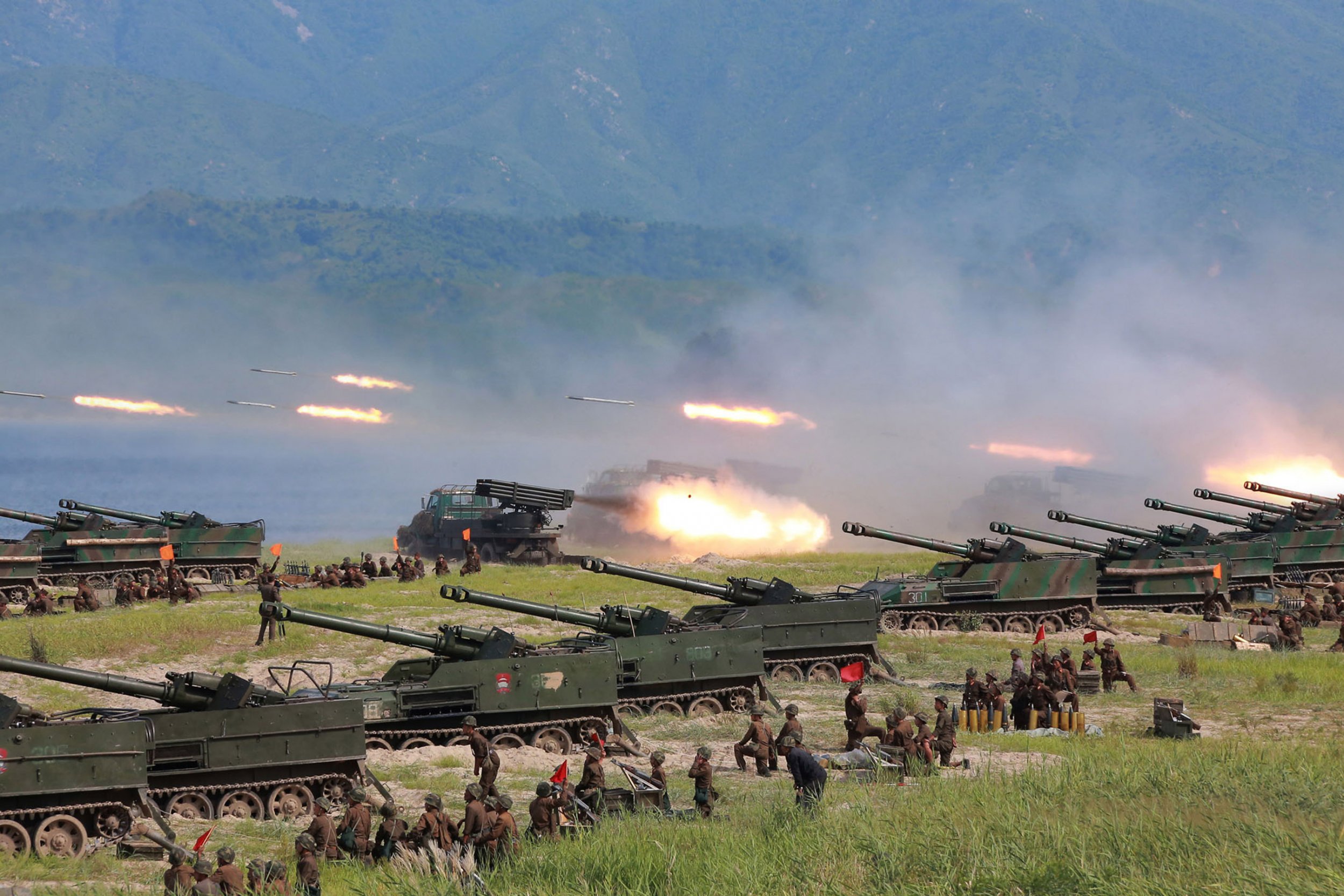
On the morning of 29 August, millions of Japanese citizens were told to seek shelter in basements and sturdy buildings as a North Korean missile soared over their heads before finally crashing into the sea.
Japanese Prime Ministe Abe Shinzo described Pyongyang's actions as an "unprecedented and grave threat" but it was actually the third time a North Korean rocket had entered Japan's airspace. That said, on the two previous occasions—in 1998 and 2009—the rockets were said to be for satellite launch vehicles, not missiles.
It has been widely suggested that North Korean provocations of Japan is due to the latter's status as the main U.S. ally in the region, making a closer target than the "real" enemy across the Pacific. But North Korea and Japan have their own unique history of hatred—one that stretches back further than any antagonism with America. It is one that explains, at least in part, the anger and anxiety that has driven the dictatorship in Pyongyng ever since its inception.
In April 2017, North Korea celebrated the 85th anniversary of its army, now the fourth largest in the world, despite the country having a population smaller than Madagascar. But one fact was absent from the military parades and rallies of commemoration: North Korea was founded in 1948, so how could its military date back 85 years? The discrepancy is due to the fact that Pyongyang dates its army to the beginning of armed resistance against Japan, the colonial power in control of Korea between 1910 and 1945.
That struggle officially began on 25 April 1932 and lasted thirteen years, when the U.S. bombing of Hiroshima and Nagasaki ended Japan's empire as well as its role in the Second World War. But the North Korean struggle against the Japanese forged the legend of a leader who would found a dynasty—Kim Il-Sung—whose family leads the nation to this day.
By 1941, Kim had spent almost a decade in the wilderness with scare resources and only a small division of soldiers, holding off Japan's colonial army amidst freezing temperatures, and occasionally claiming small but significant victories.
It was these Hollywood-esque heroics that enabled Kim's transformation into the cult figure of Korean independence, an identity that would legitimate his leadership of North Korea for 46 years from the country's creation in 1948 until his death in 1994. His grandson, Kim Jong-Un, leads the country today, while the man who many see as North Korea's number two, Choe Ryong-hae, is the son of another insurgent who survived: Choe Hyon.
But while this period established North Korea's leadership for the next seven decades, it had no an important impact on Japan. By the 1940s, the Japanese counter-insurgency had succeeded in killing off almost every major Korean resistance figure (with the exception of Kim Il-Sung and his troops) and created a future leader of their own.
The energy and ruthlessness of a young, patriotic politician, Kishi Nobusuke, proved vital to their strategy of annihilation. Kishi saw Koreans and Chinese as an inferior species but would later be referred to as "America's Favorite War Criminal," elevated to the position of president between 1957 and 1960 with US backing. Like Kim, Kishi established a dynasty: Japan's current prime minister, Shinzu Abe, is his grandson and is said to revere his grandfather as a constant source of inspiration.
"Kim Il-Sung and Kishi are meeting again through their grandsons," explained the American historian Bruce Cummings in a recent essay for the London Review of Books. "Eight decades have passed, and the baleful, irreconcilable hostility between North Korea and Japan still hangs in the air."
On February 11, earlier this year, Donald Trump received a pointed message from Pyongyang while mid-meal at Mar-a-lago, informing him that North Korea had just successfully tested a new missile. His company at the table was unlikely to have been a coincidence: it was Shinzo Abe.
Uncommon Knowledge
Newsweek is committed to challenging conventional wisdom and finding connections in the search for common ground.
Newsweek is committed to challenging conventional wisdom and finding connections in the search for common ground.
About the writer
To read how Newsweek uses AI as a newsroom tool, Click here.








